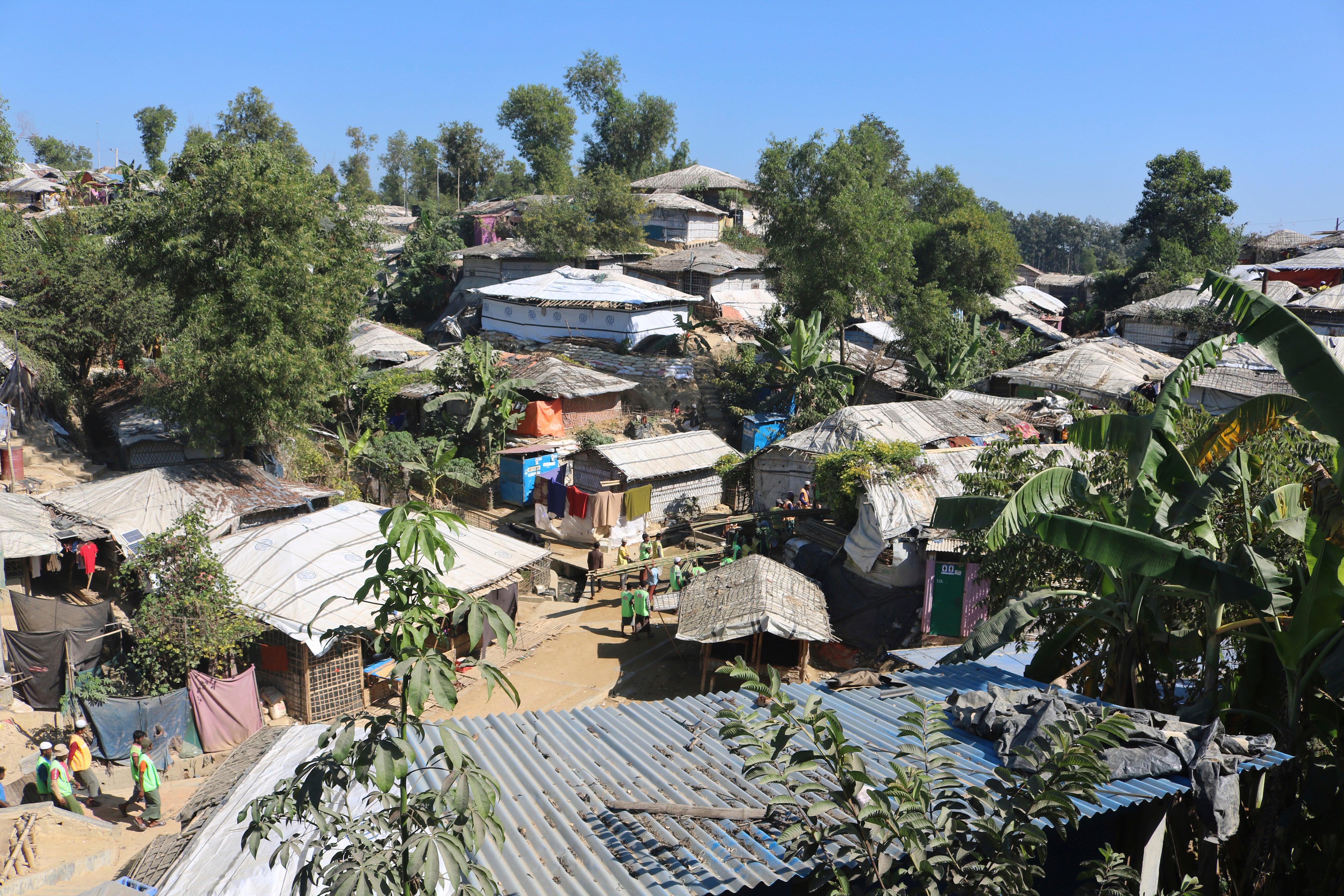Bangladesh sends 2nd group of Rohingya to isolated island
Officials in Bangladesh are sending a second group of Rohingya refugees to an isolated island in the Bay of Bengal despite calls by human rights groups for a halt to the process

Your support helps us to tell the story
From reproductive rights to climate change to Big Tech, The Independent is on the ground when the story is developing. Whether it's investigating the financials of Elon Musk's pro-Trump PAC or producing our latest documentary, 'The A Word', which shines a light on the American women fighting for reproductive rights, we know how important it is to parse out the facts from the messaging.
At such a critical moment in US history, we need reporters on the ground. Your donation allows us to keep sending journalists to speak to both sides of the story.
The Independent is trusted by Americans across the entire political spectrum. And unlike many other quality news outlets, we choose not to lock Americans out of our reporting and analysis with paywalls. We believe quality journalism should be available to everyone, paid for by those who can afford it.
Your support makes all the difference.Officials in Bangladesh sent a second group of Rohingya refugees to an isolated island in the Bay of Bengal on Monday despite calls by human rights groups for a halt to the process.
More than 30 buses carrying about 1,500 refugees left their camps in Cox’s Bazar district on the way to the island a government official involved with the process said.
The official, who spoke on condition of anonymity because he was not authorized to talk to the media, said the refugees will stay overnight in a temporary shelter in the southeastern city of Chattogram and are expected to reach Bhasan Char island on naval vessels on Tuesday at noon.
The Prime Minister’s Office said in a statement that more than 1,500 Rohingya refugees left Cox’s Bazar voluntarily under government management.
Authorities say the refugees were selected for relocation based on their willingness, and that no pressure was applied on them. But several human rights and activist groups say some refugees have been forced to go to the island, located 21 miles (34 kilometers) from the mainland.
The island surfaced only 20 years ago and was not previously inhabited. It was regularly submerged by monsoon rains but now has flood protection embankments, houses, hospitals and mosques built at a cost of more than $112 million by the Bangladesh navy.
The island’s facilities are designed to accommodate 100,000 people, just a fraction of the million Rohingya Muslims who fled waves of violent persecution in their native Myanmar and are currently living in crowded, squalid refugee camps in Cox’s Bazar district.
Authorities sent a first group of 1,642 Rohingya to the island on Dec. 4 despite calls for a halt by human rights groups.
International aid agencies and the U.N. have opposed the relocation since it was first proposed in 2015, expressing fear that a big storm could overwhelm the island and endanger thousands of lives.
The United Nations also voiced concern that refugees be allowed to make a “free and informed decision” about whether to relocate. Amnesty International and Human Rights Watch have urged the government to cancel the plan.
An influential Cabinet minister and general secretary of the governing party, Obaidul Quader, said Monday that the international community is opposing the relocation illogically.
Quader said in a news conference that the Rohingya are being moved to the island because their repatriation to Myanmar has been delayed.
He said refugees who were earlier taken to Bhashan Char have expressed satisfaction. “But some international organizations and media are saying the Rohingya were forcibly shifted, which is not true," Quader said.
About 700,000 Rohingya Muslims fled from Buddhist-majority Myanmar to Bangladesh after August 2017, when Myanmar's military began a harsh crackdown on the minority group following an attack by insurgents. Security forces have been accused of mass rapes, killings and burning thousands of homes.
Bangladesh has attempted to start sending refugees back to Myanmar under a bilateral agreement, but no one was willing to go.
The Rohingya are not recognized as citizens in Myanmar, rendering them stateless, and face other state-sanctioned discrimination.